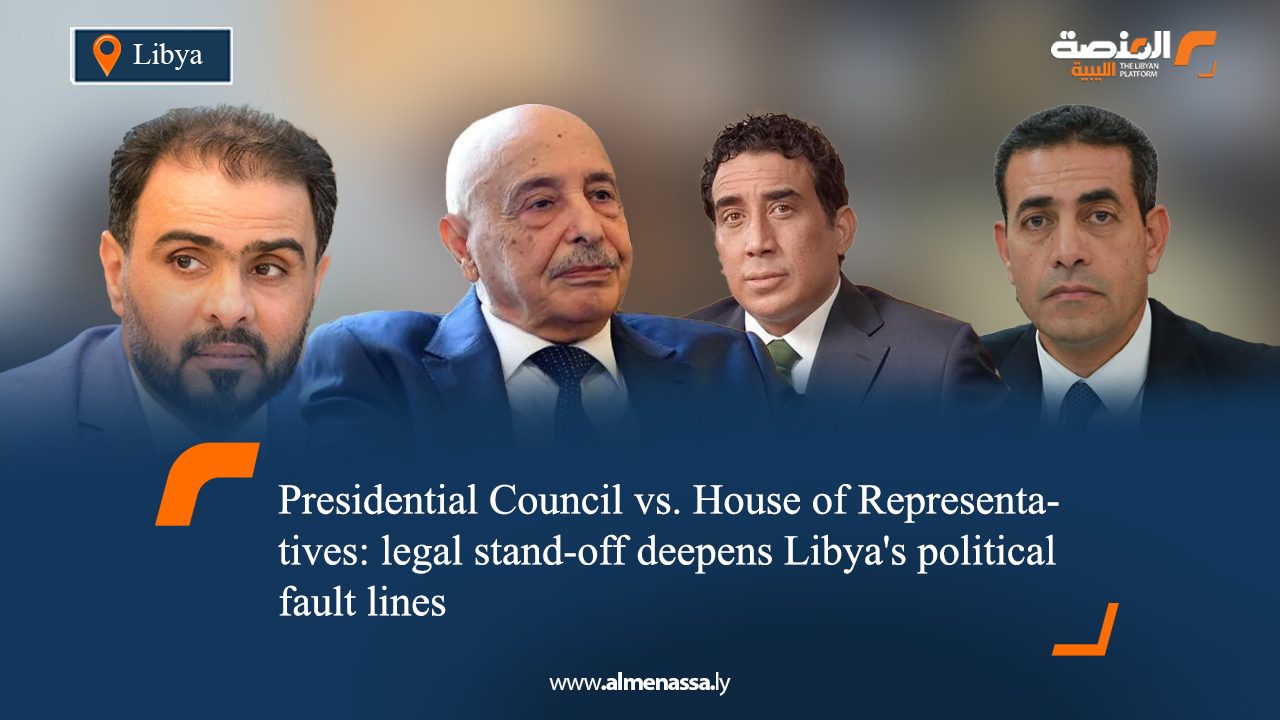Libya’s seemingly intractable political crisis has lurched into yet another, perhaps more precarious, phase of escalation. The latest catalyst? A bold decree issued by the Presidential Council, aiming to strike down Law No. (5) of 2023, legislation was passed by the House of Representatives to establish a Supreme Constitutional Court in the eastern city of Benghazi. The Presidential Council, in a move laden with legal and political significance, argued the law’s inherent unconstitutionality, citing a ruling from the Constitutional Chamber of the Supreme Court. Consequently, they declared any actions predicated on this disputed legal foundation as null, void, and devoid of any legal consequence.
However, this assertive move has itself fractured the already fragile unity within the Presidential Council. Abdullah al-Lafi, a member of the collective leadership, swiftly issued a dissenting statement, lambasting what he characterised as a “unilateral decision.” He pointedly reminded observers that, according to established norms, presidential decrees demand the full consensus of the body’s constituent members, insisting that this particular decree carries no legitimate legal or constitutional weight.
Across the political divide, the Speaker of the House of Representatives, Aguila Saleh, met the decree with outright rejection. He decried the move as a flagrant overreach of executive power, an unacceptable transgression upon the legislative authority, and a deliberate attempt to paralyse the functioning of elected institutions. Saleh emphatically stated that neither the foundational Constitutional Declaration nor the transitional Political Agreement bestows upon the Presidential Council any mandate to unilaterally repeal laws enacted by the legislative branch.
Adding his voice to the growing chorus of condemnation, the Prime Minister of the parallel Libyan government, Dr. Osama Hamad, described the Presidential Council’s decree as a blatant and unwarranted assault on the inherent prerogatives of the legislative authority. Hamad argued that the power to issue decrees with the force of law is the exclusive domain of the head of state or those explicitly authorised to do so by the constitution – a condition, he asserted, that the current Presidential Council demonstrably fails to meet. He warned with stark clarity that such irresponsible practices pose a grave threat to the already faltering national efforts aimed at unifying Libya’s deeply fractured institutions, and serve only to further obstruct the inclusive political process that national actors ostensibly seek.
Looming Referendum: A New Avenue for Political Crisis? The recent decree, however dramatic, is not an isolated incident in the escalating and increasingly acrimonious exchanges between Libya’s rival factions. Back in August of the previous year, 2024, the Presidential Council had already raised eyebrows and hackles with a similar decision to establish a commission for a referendum and national consultation. This move was swiftly interpreted by many observers as a thinly veiled attempt to circumvent the authority of both the House of Representatives and the High Council of State, seeking their dissolution through the unconventional mechanism of an electronic referendum. These suspicions have been significantly amplified by the recent official communication from the head of the Presidential Council to the chairman of the High National Elections Commission, explicitly urging the latter to undertake all necessary practical measures to hold the referendum within a mere thirty days.


